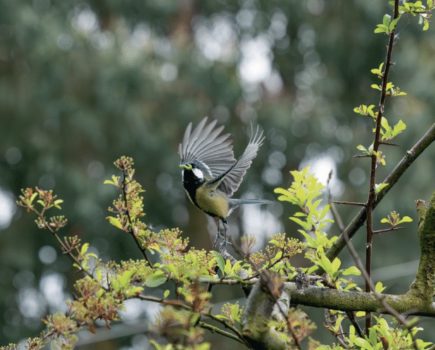Oct 30, 2012: Britain’s beekeepers have endured a desperately difficult summer with average honey yields down to just eight pounds per hive, compared to a yearly average of 30 pounds, according to the results of the British Beekeepers Association’s latest annual Honey Survey (announced October 30).
Country Smallholding bees writer Jules Moore appeared on the BBC TV programme Breakfast Time today (Wednesday) to talk about the seriousness of the situation. Honey bees produce honey as a food store. In a normal year this store should be sufficient to see them through the winter months. The nation’s honey bees now face an even more trying winter than usual with vastly depleted stores and even greater reliance than usual on the feeding skills of beekeepers to prevent mass starvation occurring through the dark winter months when honey bees would normally feed on honey produced over the previous summer. Nearly nine in 10 (88 per cent) of the 2,700 beekeepers who took part in the survey cited rain and cold weather as the main cause of depleted honey supplies this year, conditions which caused the BBKA to issue an unprecedented mid-summer warning to beekeepers to check the stores in their honey bee colonies and to feed them if they were inadequate to avoid starvation. The poor summer weather may have a longer-term impact on the health of the nation’s honey bees as the weather is likely to have hampered the normal process of queen production. Virgin queens mate on the wing on fine, still summer days. If the weather prevents them flying within the timescale required then queens may be poorly mated and be unable to produce sufficient new brood to see colonies through the winter. As well as its annual honey survey, the BBKA surveys its members to monitor winter colony survival levels and will report on this in June next year. Only then will the full impact of this year’s unusual weather patterns become apparent. The BBKA runs a scheme, www.adoptabeehive.com, which enables people to become ‘armchair beekeepers’ and follow the operations of a local beekeeper to raise funds for applied research projects to help protect the honey bee. Peter Hutton, a BBKA Adopt a Beehive beekeeper in Tunbridge Wells (South East region) reports: “It has been the most difficult year I have known in my 53 years of beekeeping. Bad weather in spring prevented honey bees in many areas from collecting nectar from early flowering crops such as oil seed rape, and the rain continued in many places throughout June and July preventing honey bees from foraging on later crops.” In terms of regional variations, London beekeepers fared the worst producing just 5.6lbs of honey per colony compared with 25.8lbs per colony last year whilst Northern Ireland performed the best but still saw their honey yields down by more than 50 per cent over 2011. Angela Woods, Secretary of the London Beekeepers Association commented: “The results for the London area suggest that it was not just bad weather that was the problem. They may also highlight the lack of forage in the city for many bees. Rather than putting beehives on office roofs, we encourage companies in London who want to help to look at different ways of supporting bees and beekeepers. We need more forage for the bees and better educated beekeepers. Individuals can help too by becoming an armchair beekeeper and taking up the BBKA’s offer to Adopt a Beehive.” Val Francis, a BBKA Adopt a Beehive beekeeper in Yorkshire (North East region), was not caught out by the starvation warning issued in June thanks to dry spells in early summer as she explains: “I took off 150lbs of honey in May but made sure I left some honey behind for the bees which was just as well as the poor conditions later meant that many beekeepers had to heed the starvation warnings and feed their colonies with sugar syrup”. Hannah Hodgson, a BBKA Adopt a Beehive beekeeper from Liverpool (North West region), combines beekeeping with her full time job as a commercial airline pilot, and had to monitor her bees over the spring and summer months to ensure they were not under threat of starvation. “I have kept a close eye on my bees, monitoring food stores but luckily only supplemented their reserves a couple of times when it was clear their stores were depleting faster than the weather would allow for replenishment”, Hannah commented. In this past year, Vanessa Drew, another experienced beekeeper in the Adopt a Beehive scheme (Northern Ireland), became a Master Beekeeper and was also crowned Irish Honey Queen. This is the first time the crown has been awarded to a beekeeper from Northern Ireland for almost 30 years, but her experience and success could not change the weather and the impact on her colonies. “Honey bees need calm, warm weather for the worker bees to forage and for the queen and drones to fly out to mate. Fortunately they have all been mated, but only time will tell how well.” Vanessa reported her honey crop to be severely diminished this year due to the poor summer.







